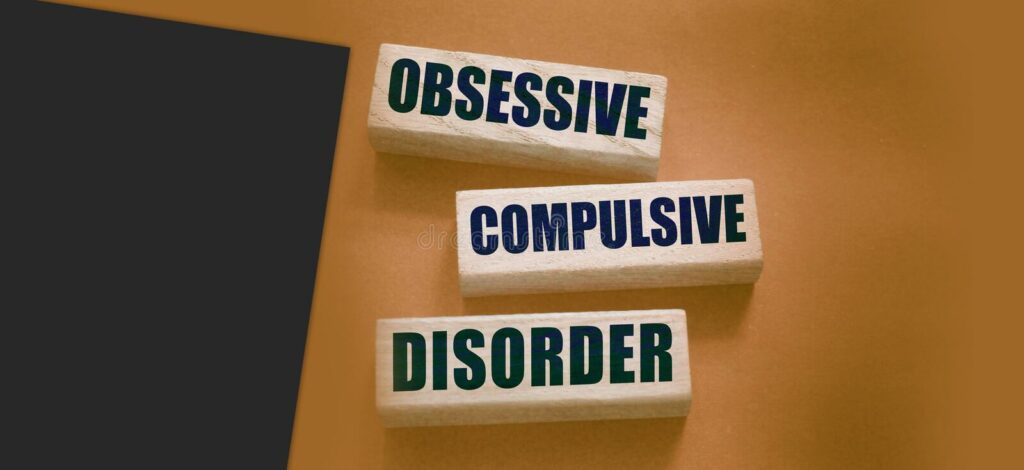Obsessive Compulsive Disorder (OCD) is a mental disorder that is characterized by recurrent and intrusive thoughts or images that cause distress. These thoughts or images must be avoided, and the person with OCD will often do anything to avoid them, whether it’s counting, cleaning, or checking things multiple times. OCD can significantly impact a person’s life, and if left untreated, it can lead to serious psychiatric problems. In this blog post, we will explore what OCD is in psychiatry and how you can get help if you or someone you know is struggling with the disorder.
Contents
- 1 What is OCD?
- 2 Types of OCD
- 3 The Symptoms of OCD
- 4 How Would A Psychiatrist Treat OCD
- 5 How to deal with OCD
- 6 What Does OCD Thinking Feel Like?
- 7 Is OCD Psychiatric Or Neurological?
- 8 Can OCD Be Misdiagnosed As Psychosis
- 9 Is It Better To See A Psychiatrist Or A Psychologist For OCD
- 10 How Long Would It Take To Heal
- 11 Conclusion
What is OCD?
 Obsessive-compulsive disorder (OCD) is a mental disorder characterized by obsessions and compulsions. People with OCD often have unwanted thoughts or images that they cannot shake, and may feel compelled to do things over and over again to try to rid themselves of the thoughts or images.
Obsessive-compulsive disorder (OCD) is a mental disorder characterized by obsessions and compulsions. People with OCD often have unwanted thoughts or images that they cannot shake, and may feel compelled to do things over and over again to try to rid themselves of the thoughts or images.
OCD can be extremely disruptive, causing people to lose jobs, relationships, and even their homes. In severe cases, people with OCD may require professional help in order to manage their symptoms.
There is no one answer to what constitutes an obsession or compulsion in OCD, as each person experiences these phenomena differently. However, some common obsessions in OCD include fear of contamination or dirtiness; fear of symmetry or numerology; fear of going crazy; fear of hurting others; and fear of triggering an event from the past. Compulsions in OCD can involve repeated thoughts or rituals that a person feels driven to perform in order to alleviate anxiety. Some common compulsions in OCD include excessive cleaning; seeking reassurance from others; checking locks multiple times a day; counting objects or words until they reach a certain number; and repeating prayers or mantras.
Types of OCD
There are two common types of OCD, which are classified according to the type of obsession that is experienced. The first type is called obsessional thoughts, where a person has recurrent and persistent thoughts or images that are considered to be intrusive and unacceptable. The second type is called compulsive behaviours, which involve repetitive and ritualistic actions or rituals that a person feels compelled to perform in order to alleviate anxiety or distress.
The main symptoms of OCD vary depending on the type of obsession a person experiences. For example, people with obsessional thoughts often experience anxiety and dread when they have intrusive thoughts, which can make it difficult to concentrate or complete tasks. They may also experience extreme fear of losing control or becoming overwhelmed by thoughts, leading them to compulsively avoid certain situations or activities in order to reduce their anxiety. People with compulsive behaviours commonly engage in repetitive rituals such as checking locks multiple times, counting steps, and repeating prayers or mantras. They may feel guilty or ashamed about their behaviour, which can further increase their anxiety.
The Symptoms of OCD
OCD is a mental disorder that typically appears during adolescence or early adulthood and lasts for about six months. People with OCD often have obsessions, which are intrusive thoughts or images that cause distress. These thoughts may occur repeatedly or continuously, no matter how absurd or embarrassing they may seem at first. People with OCD also have compulsions, which are ritualistic behaviours or mental acts that the person feels compelled to do in order to relieve the anxiety caused by the obsessions. Finally, people with OCD often experience related problems such as poor concentration, difficulty making decisions, and persistently high levels of anxiety.
How Would A Psychiatrist Treat OCD
OCD is a mental disorder that is characterized by persistent and intrusive thoughts, or images, that are experienced over and over again. These thoughts may be related to fear of specific objects or situations, or they may be excessively repetitive. An individual with OCD typically tries to avoid the thoughts or situations that are associated with the anxiety and may feel like they are under constant surveillance.
OCD is usually treated with medication and therapy. Medications can help reduce the severity of symptoms, while therapy focuses on teaching the individual coping strategies and addressing any underlying psychological issues. In some cases, surgery may be needed to remove the object or situation that is causing the anxiety.
How to deal with OCD
OCD is a debilitating mental disorder characterized by intrusive thoughts, or obsessions, that interfere with everyday life. People with OCD may focus on certain thoughts and images over and over again, or experience strong unwanted urges to perform specific rituals. These symptoms can severely disrupt the person’s functioning and quality of life.
There is no one-size-fits-all approach to dealing with OCD, as each individual’s symptoms will vary significantly. However, many successful treatment strategies involve cognitive-behavioural therapy (CBT), medication, and support groups. CBT focuses on changing the person’s distorted thought patterns and behaviours around OCD. Medications can help to treat the underlying causes of OCD, such as depression or anxiety. Support groups offer a social environment in which individuals can share experiences and coping mechanisms related to OCD.
OCD is a serious mental illness that requires professional care and commitment from all involved parties. If you are experiencing any signs or symptoms of OCD, please seek professional help as soon as possible.
What Does OCD Thinking Feel Like?
 OCD is a mental disorder that is characterized by intrusive, repetitive thoughts or images that cause distress. These thoughts or images often concern contamination, harm to self or others, or some sort of evil. People with OCD may also experience strong urges to perform certain rituals in order to prevent the feared situation from occurring.
OCD is a mental disorder that is characterized by intrusive, repetitive thoughts or images that cause distress. These thoughts or images often concern contamination, harm to self or others, or some sort of evil. People with OCD may also experience strong urges to perform certain rituals in order to prevent the feared situation from occurring.
Overall, people with OCD generally experience a great deal of anxiety and stress due to intrusive thoughts and images. It can be difficult for them to focus on anything else, and they may feel overwhelmed and driven to do things (like avoid thoughts) in an attempt to decrease anxiety. This can lead to problems at work, home life, and other areas of life.
OCD thinking can feel like a never-ending cycle of worry. The individual may obsess about potential dangers (e.g., touching something they’re not supposed to touch), which leads to more anxiety and fear. This cycle then causes them to engage in more compulsions (behaviours intended to reduce anxiety), which further aggravates their symptoms.
Is OCD Psychiatric Or Neurological?
OCD is considered a psychiatric condition, meaning it is characterised by distinct symptoms that cause significant distress or impairment in social, occupational, or other important areas of functioning. The three main types of OCD are obsessions, compulsions, and rumination. Obsessions are intrusive thoughts or images that typically involve some sort of concern or fear. Compulsions are repetitive behaviours or mental rituals that people with OCD often find difficult to stop even when they know they’re not helpful. Rumination is the tendency to focus on negative thoughts and feelings in a way that can be destructive. People with OCD often experience a high degree of anxiety and stress as a result of their symptoms.
Can OCD Be Misdiagnosed As Psychosis
OCD is a mental disorder that can be difficult to diagnose and may go undiagnosed. It’s characterized by repeated and intrusive thoughts, images or urges that are experienced over a period of weeks or months. People with OCD often feel like they need to do something about their obsessions, even if the thought or image isn’t causing any distress.
OCD can cause significant distress and interference in daily life. It can also lead to avoidance of certain activities or situations, as well as conflict with friends and family members. In rare cases, OCD can develop into full-blown psychosis, which is a serious mental disorder characterized by distorted thinking, hallucinations and mania.
Is It Better To See A Psychiatrist Or A Psychologist For OCD
OCD is a mental disorder that causes people to have obsessions and compulsions. Obsessions are thoughts or images that keep coming back to someone, even if they think they’ve rid themselves of them. The compulsions are actions or behaviours that someone feels compelled to do in order to avoid having the obsession.
There is no one-size-fits-all answer to this question, as the best way to treat OCD depends on the person’s specific symptoms and situation. However, many people find that seeing a psychiatrist is more effective than seeing a psychologist for OCD. Psychiatrists are trained in diagnosing and treating mental disorders, so they’re better equipped to handle the full range of symptoms associated with OCD. They can also prescribe medication if necessary.
Psychologists, on the other hand, are not typically trained in diagnosing and treating mental disorders. As a result, psychologists may not be as sensitive when it comes to recognizing signs of OCD. Additionally, psychologists may not be able to prescribe medication effectively. This means that people who suffer from OCD may have to deal with their symptoms without any help from medication or therapy for an extended period of time.
How Long Would It Take To Heal
 OCD is a mental disorder that causes people to have obsessions and compulsions. These obsessions and compulsions can be very upsetting and interfere with everyday life. People with OCD often think about the obsession or compulsion constantly, even when they’re not consciously thinking about it. This can make it difficult to function normally.
OCD is a mental disorder that causes people to have obsessions and compulsions. These obsessions and compulsions can be very upsetting and interfere with everyday life. People with OCD often think about the obsession or compulsion constantly, even when they’re not consciously thinking about it. This can make it difficult to function normally.
There is no one answer to this question since OCD can vary drastically from person to person. However, according to the National Institute of Mental Health (NIMH), it typically takes around 12 weeks for people with OCD to achieve complete remission (meaning that their symptoms have gone away for at least 6 months). During this time, people may need to see a psychiatrist or therapist on a regular basis for support. Some people may also need medication to help manage their symptoms.
Conclusion
OCD is a mental disorder that causes people to have intrusive, distressing thoughts and images that they can’t shake. These thoughts often revolve around everyday objects or activities, and the person with OCD may feel like their life is constantly in danger. Despite the severity of OCD, there are treatments available that can help people live functional lives. If you or someone you know is struggling with OCD, please reach out for help. There might be relief waiting just beyond your grasp.
For more information and guidance, please contact OCDMantra. OCD is a mental health disorder characterized by obsessions and compulsions. If you have any queries regarding OCD treatment, OCD Counseling, ERP therapy experienced therapists at OCDMantra can help: Book a trial OCD therapy session


